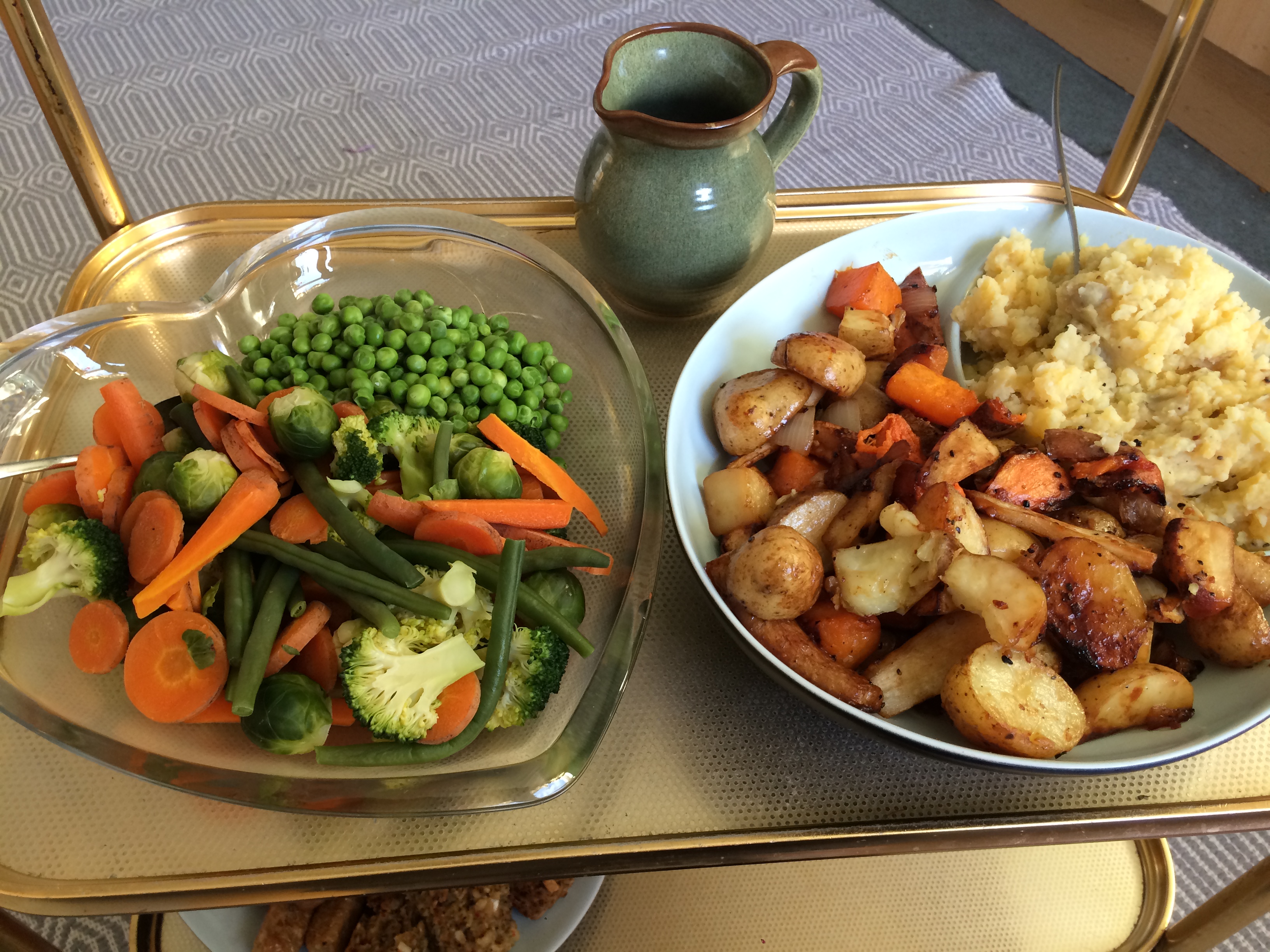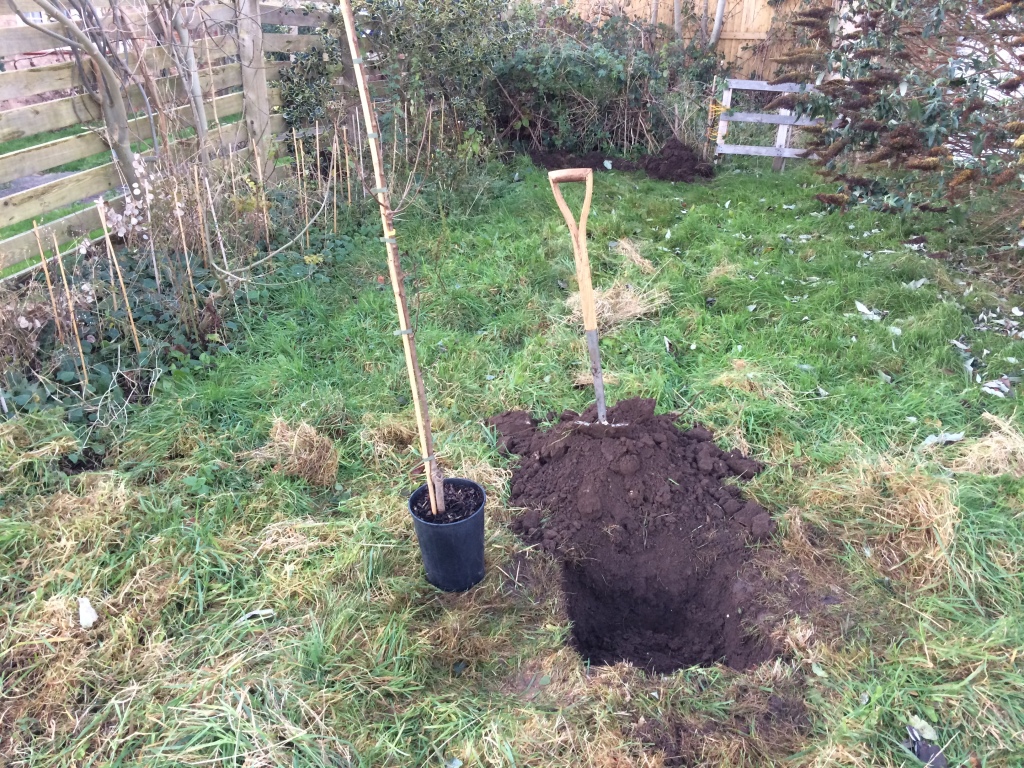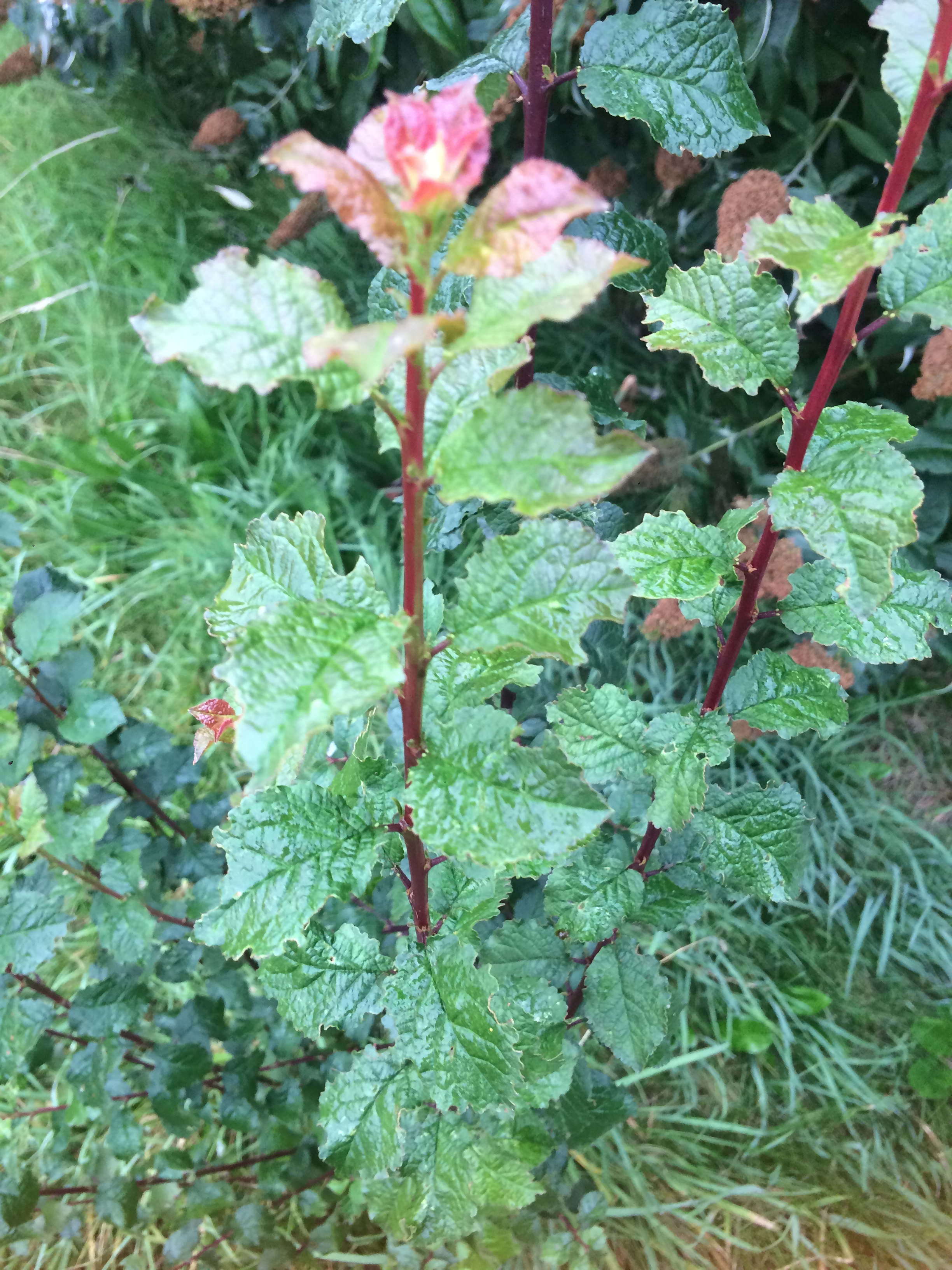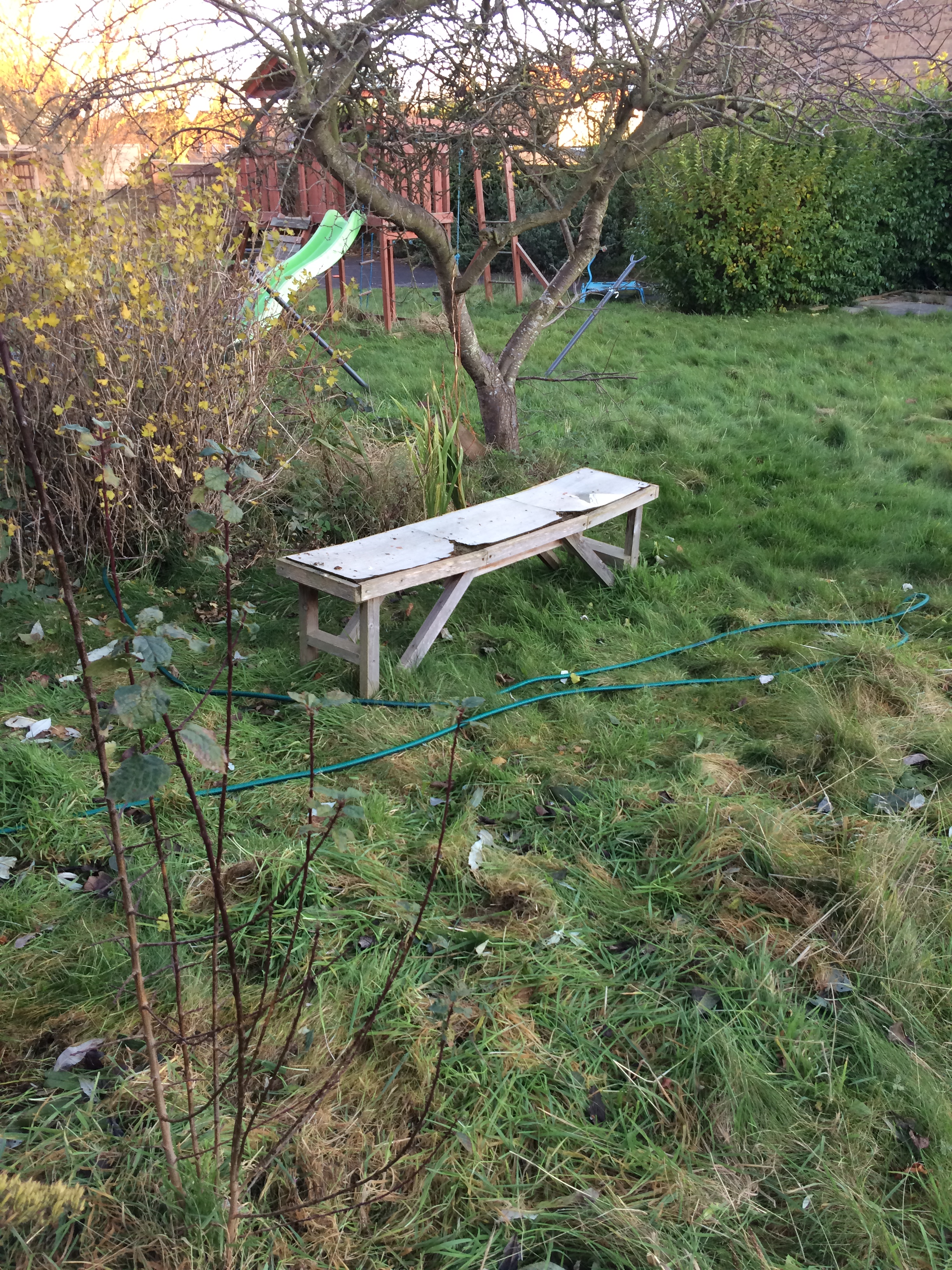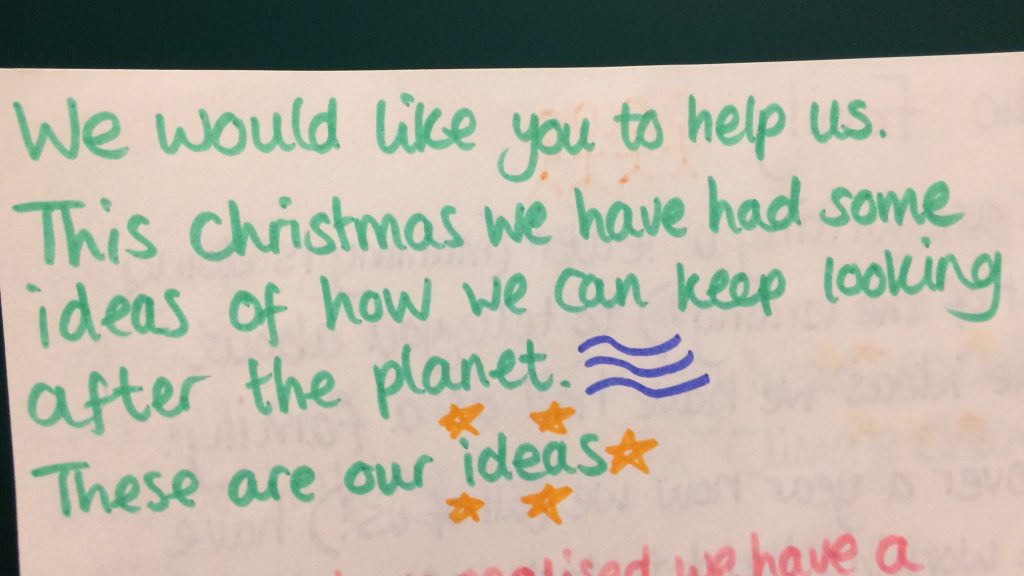Yesterday I had a wonderful cycle ride in the bright sunshine of Sunday morning – up to the village of Flamborough (about 6 miles away) to speak at their Sunday morning service of worship. I was invited by Revd. Jane, partly to connect with them about my role as Multiply Minister for Bridlington, and also in my capacity as ‘Dean of Green’ – promoting care for creation in our ‘deanery’ ( =area – don’t worry about the Church of England jargon, most of us don’t know what it means either).
The set Bible text for the day was from the Gospel of Luke – about Jesus as a child being presented at the Temple. I asked if we could also have a passage from Romans read (links to both passages below), because I wanted to speak about what it looks like to be a follower of Jesus in a time of Climate and Ecological Crisis…

When I speak (‘preach’) at church I don’t normally write out my notes in full – it’s just not my style. I also don’t normally wear fancy vicar robes. But Jane asked me to write up what I was going to say because their normal practice is to email around talk notes for people who couldn’t make it, and to wear my fancy dress (because that is their style), so I stretched out of my normal habit to oblige on both counts. Having written up what I planned to say in full I thought it worth sharing here too. Enjoy!
——–
St Oswald’s Flamborough, Sunday 30th Jan
Luke 2:22-40, Romans 8:18-25 – Candlemas, Multiply, Climate Crisis
Good morning! My name is Oli Preston. I am the Multiply Minister for Bridlington deanery, based at Christ Church. This role is about connecting with young adults – people in their 20s-40s – making disciples, growing leaders, and hopefully in time seeing new churches (new worshipping communities) start. Not just in Christ Church Network but around the deanery – supporting anyone who would like to explore this. Curious? Let’s have coffee!
I am also the ‘Dean of Green’ for Bridlington Deanery – passionate about treasuring, sustaining and renewing all of Creation: God’s good gift to us, our shared home. As the Church of England we are committed to be carbon neutral by 2030 – an exciting target that will take teamwork to achieve, and which will reach far beyond changing lightbulbs and recycling…
It is wonderful to be with you this morning, thank you for inviting me.
In our reading today we are introduced to Simeon and Anna – two elderly people who have been waiting and watching for years. The Gospel writer honours and blesses their faith and faithfulness. When they meet the infant Jesus these two people both see God’s salvation and praise God for it.
What do we mean by Salvation?
- Saved, rescued, redeemed, released, set free, restored, made whole, fixed, re-connected
- This is a personal thing – in spirit, body and mind (a person’s whole being), but also a social (Simeon was waiting for the redemption of Israel – the whole community), and even bigger than that: cosmic!
Look at the scope of salvation in our reading from Romans 8:
- The redemption of our bodies – not just a spirit thing, whole life.
- Our adoption as children of God – personal, brought into a new family: new rights and responsibilities.
- All of Creation groans to be liberated from its ‘bondage to decay’ – cosmic scale!
We see a good deal of this ‘bondage to decay’ today.
In individual lives illness, overwork, broken relationships, the emptiness of worldly ‘success’ and hopelessness eat away at people. In our social life division, isolation, unkindness, selfishness and mistrust eat away at our common life. We are more connected than ever, but also lonelier than ever. More educated, but less wise. Endless possibilities and opportunities, but distracted to death. Every generation needs Jesus – we always have, and we always will.
And as we look at the world around us we see creation in crisis – natural disasters eclipsed by the enormity of the climate and ecological crisis that human destructiveness has brought on. Since the industrial revolution, and especially in the last 60-70years, we have upset the stability and health of our planet: burning fossil fuels, destroying natural habitat, and polluting with reckless abandon – wrapping a dirty blanket around the earth. The unholy trinity of unrestrained capitalism, consumerism and individualism have driven us to treat God’s good gift – the world He loves – like the wrapper on a chocolate bar: eat what you want and throw the rest away. Lord have mercy. As we sometimes pray in confession: “through ignorance, through weakness, through our own deliberate fault; we have wounded Your love, and marred Your image in us.”
But right here, in the midst of crisis, we stand again today with Simeon and Anna, and see the salvation of God. Jesus. Jesus welcomed by these two faithful elders as the promise, the means and the meaning of salvation. Jesus is the way, and what it looks like – humanity fully realised, right relationship, Eden restored – “the Son of God revealed” (Rom 8). Jesus is salvation before he has ever done anything – His presence here, even as a baby, is a potent sign of God’s faithfulness and love (Immanuel) and of God’s coming redemption. Messiah is Here. His presence changes everything: starting with us, and rippling out into all creation.
Because this salvation is always personal, but never only personal. Simeon can rest in peace, but he also gives a blessing. Anna sees the promise fulfilled, but immediately starts speaking to everyone she meets about God’s goodness: verse 38, Anna “spoke about the child to all who were looking forward to redemption”.
Candlemas is traditionally a festival of having candles blessed – of bringing our lights together to be lit by The Light – just like we did at the beginning of the service today. What might this look like in the rest of our lives?
- This Candlemas let’s come to Jesus and be lit up again as those who are ‘adopted as children of God’ to shine His presence in the world! Sharing hope with the broken, bringing freedom to the oppressed, offering belonging and peace to those who are disconnected and struggling. Our churches have lost contact with younger adults – the patterns of their lives have changed, the ways that people connect to and belong in communities has changed, but they still need Jesus as much as ever. As those who have seen the salvation that God has promised we now have a great gift and hope to share!
- On Westhill estate there is a new worshipping community growing: Love Westhill. It is connecting with people who have never been part of a church before – who had never really thought about Jesus before. Church gatherings look very different – different time, very chaotic, asking questions and talking, sharing food and sharing stories of how people are getting to know God and how He is changing their lives. This isn’t instead of the inherited church on the estate, but as well as. What might that look like in this benefice?
- How could you encourage and bless young adults – those struggling with making ends meet, those who are caught in the blessing and challenges of parenting young children, those who feel disconnected or hopeless…
- Last summer the IPCC – United Nations body for climate science – released a report that gave a “code red for humanity”. We are at a turning point in history, in which the leaders of the church (Pope Francis, Archbishop Justin Welby and Patriarch Bartholomew) urge us to “choose life” – in a joint letter last September. How can we live as those filled with the Spirit of God, who is redeeming and restoring all things?
- Change our ways – take stock of our individual and corporate lives, and how our actions and inaction impact the world around us.
- Speak the truth in a world of distraction and misinformation. Having our hope firmly in Jesus allows us to face the reality of the crisis without despairing – our world needs truth tellers.
- Call on our political leaders to lead the way: Green hearts – a way to shine your candle today: https://www.theclimatecoalition.org/show-the-love/
- For now, and always (!), let’s pray









